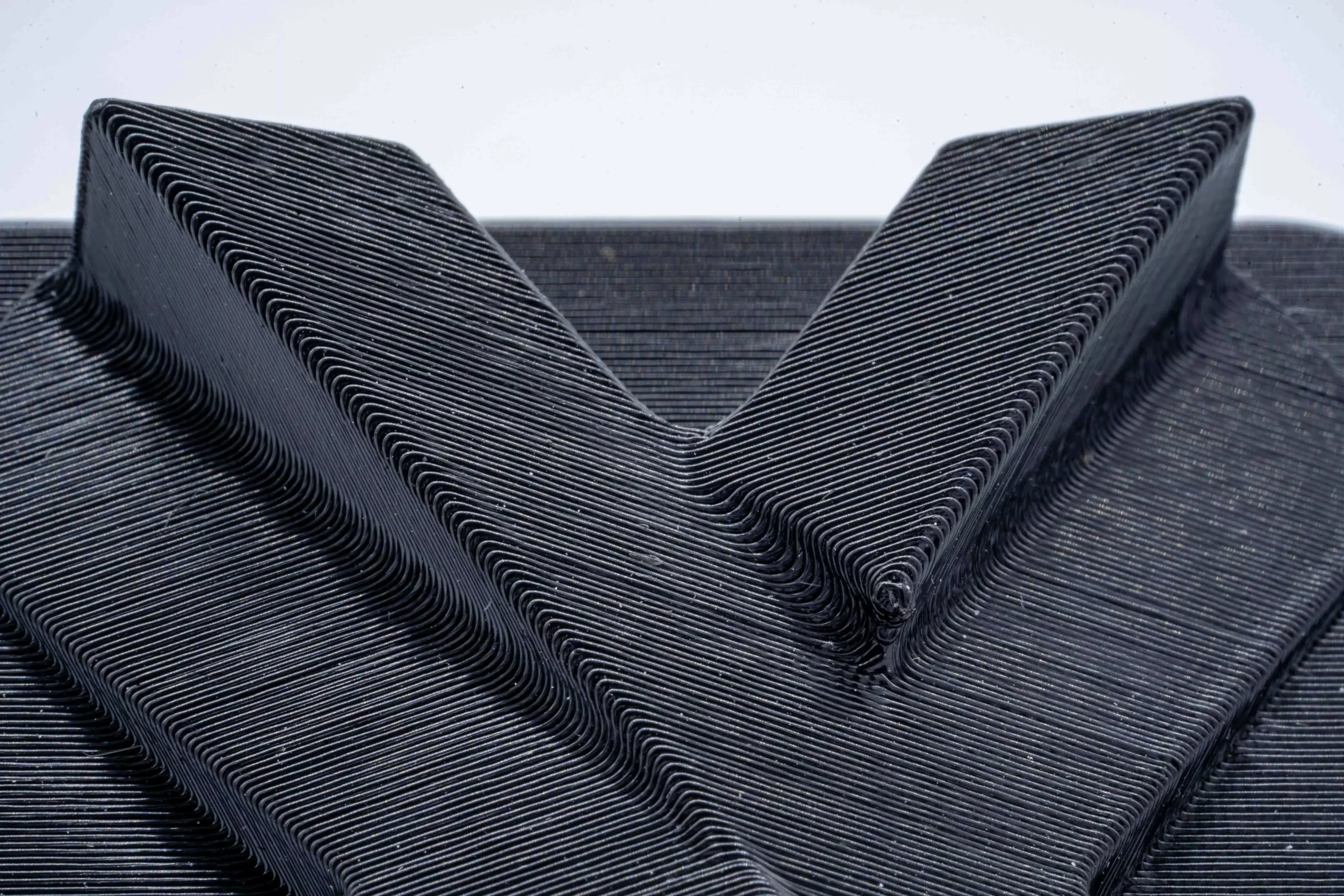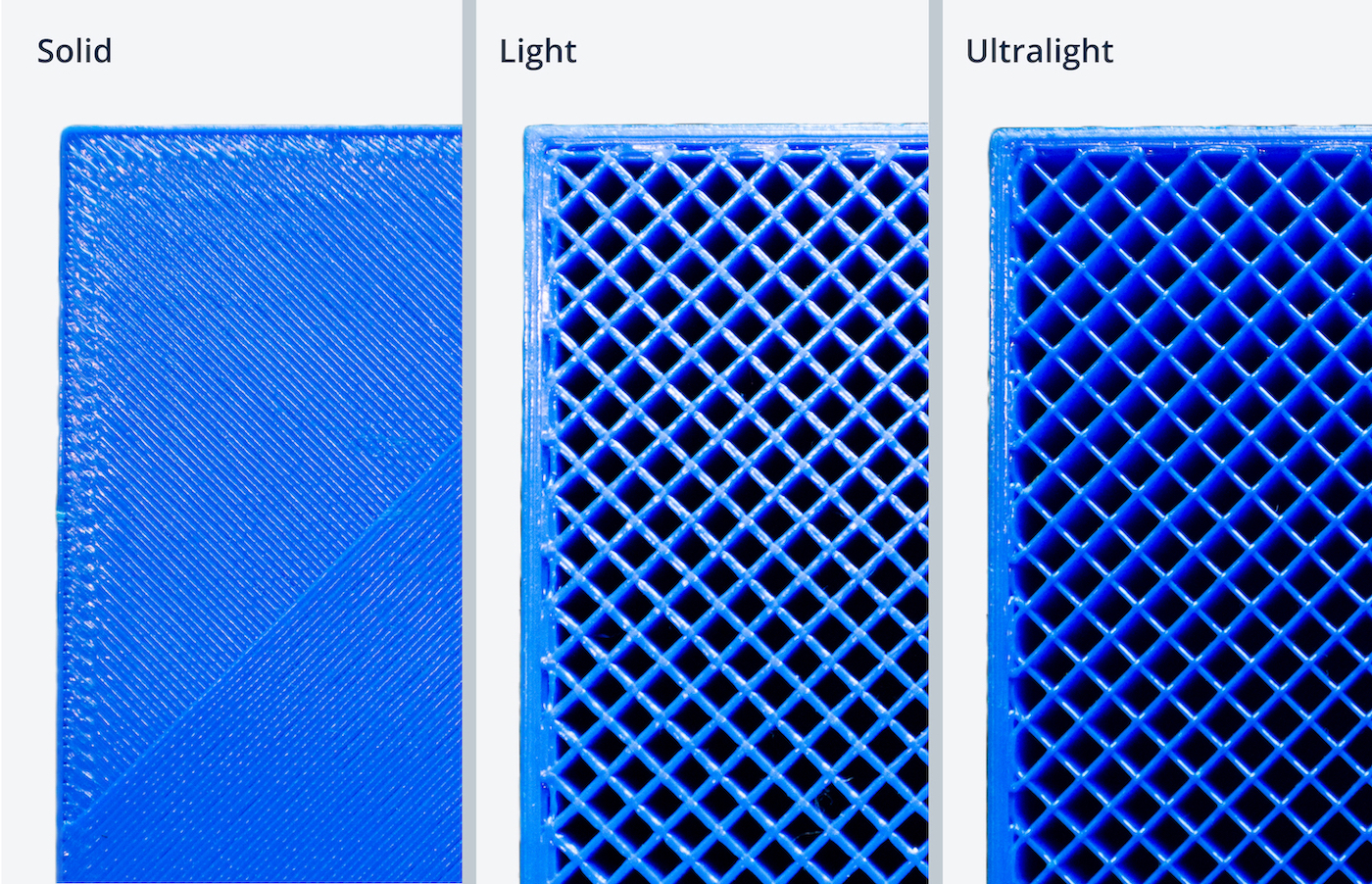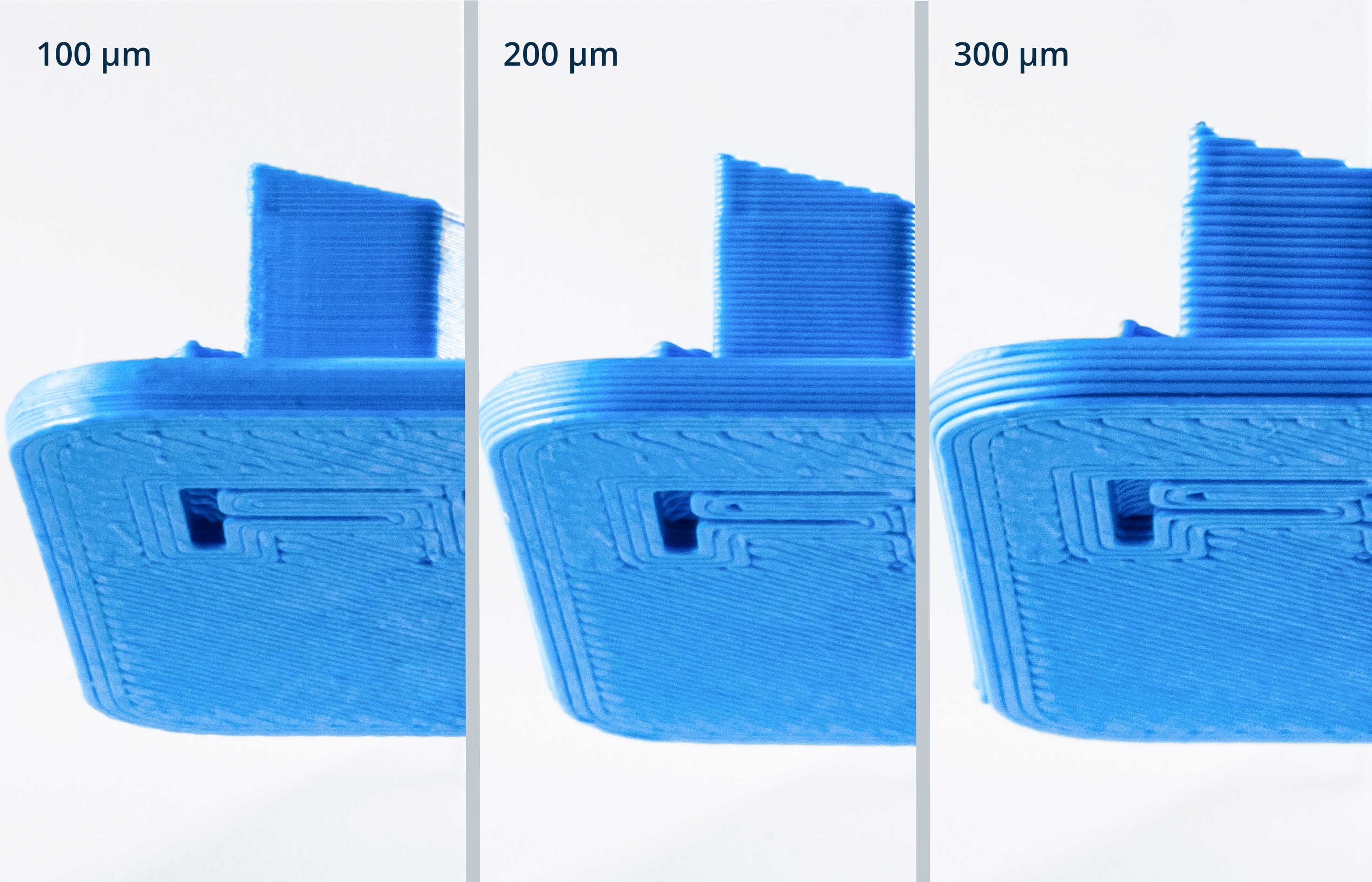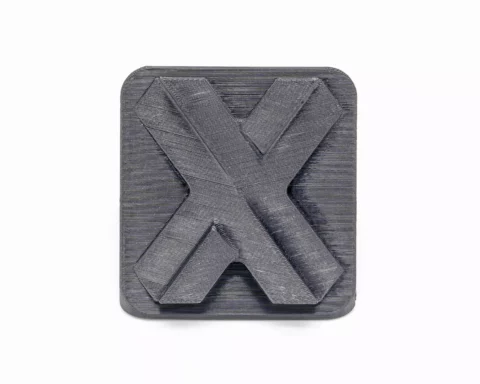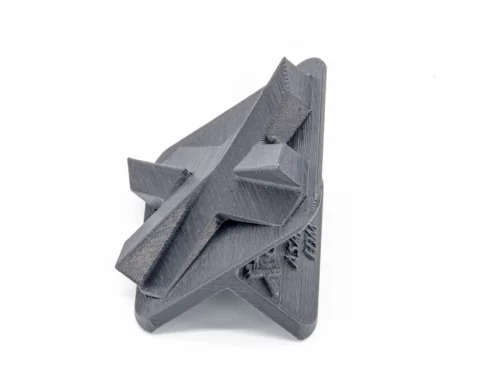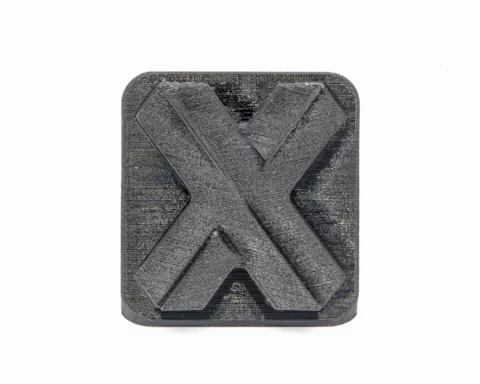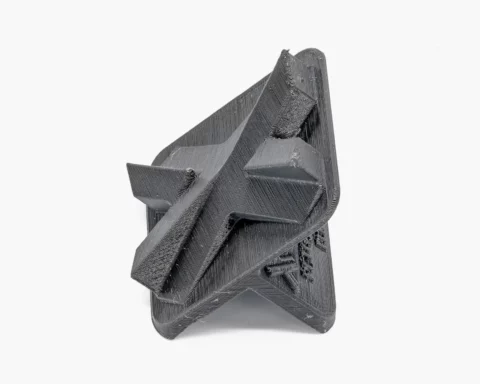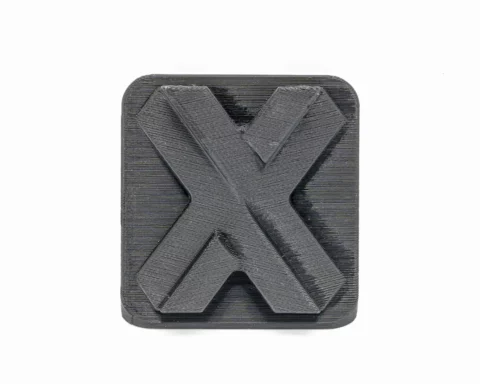Fused Deposition Modeling (FDM) Services
- Free Delivery
- Over 20 Different Materials
- Manufacturing From 8 Business Days
Start A New 3D Printing Quote
STEP | STP | SLDPRT | STL | IPT | 3DXML | CATPART | PTC | PRT | SAT
FDM 3D Printing Capabilities
Fused Deposition Modeling (FDM) is a 3D printing technology widely known for its great material selection, accuracy, possibility to print large parts, and competitive cost. FDM parts are great for end-use, low-volume production, for rapid prototyping. FDM 3D prints usually do not require any post-processing.
Try Xometry Out Now In Just A Few Steps
Multiple designs for different parts can be imported at the same time to produce a single quote. In less than a minute, a detailed cost estimation appears on the screen.
First, select the manufacturing process you require. You can then choose from over 70 materials, both metals and plastics, and from a wide range of finishes and certifications.
Once you have selected the required options, all you need to do is confirm the order and pay for it on the secure payment platform. Your design will be analysed by engineers.
Within a short amount of time, you will receive the parts you ordered directly to your shipping address. You can track your package at any time in your personal account.
Advantages of FDM with Xometry
Massive Capacity
We can quickly produce both prototypes and large batches thanks to the largest manufacturing network in Europe, with over 2,000 vetted partners
Fast Production
You will get your 3D printed parts fast delivered in as fast as 8 days.
Quality Assurance
We have strong QA procedures, controlled by an in-house team of QA engineers, which allows us to deliver high quality parts.
Engineering Check & Status Updates
All designs are checked by engineers before they’re sent for 3D printing. After confirming your order, you will receive status updates on your production.
FDM 3D Printing Materials
- ABS
- ABS M30
- ABS-ESD7
- ASA
- Industrial PEEK
- Nylon 12 / PA 12 (FDM)
- Nylon 12CF / PA 12 carbon-filled
- PC (Polycarbonate)
- PC ISO (Polycarbonate ISO 10993 USP Class VI)
- PC-ABS Polycarbonate
- PETG
- PLA
- Standard PEEK
- ULTEM 1010
- ULTEM 9085
FDM Infill Options
Fused Deposition Modeling (FDM) is a 3D printing technology that builds a part layer by layer by depositing heated thermoplastic along an extrusion path. In this process, there are several different ways the interior areas of a part can be interpreted when the part is built. Infill describes how those interior areas of a part should be filled in.
Xometry offers three types of infill options:
- Ultralight FDM infill: Up to 20% infill density. Ultralight infill parts are filled with a single zig-zag pattern. This is the lightest and least expensive infill option
- Light FDM infill: 20-50% infill density. Light infill parts are filled with a double cross-hatch pattern. This option provides increased rigidity and is lighter than a complete solid infill
- Solid FDM infill: 50-80% infill density. Solid infill parts are filled for a higher density. This is the heaviest and more expensive option but offers the highest strength
FDM Layer Thickness Options
Layer thickness refers to the height of each layer added during the additive manufacturing or 3D printing procedure, where multiple layers are stacked upon one another to create the final product. For FDM, choosing your layer thickness is a critical parameter that directly impacts a part’s visual appearance, properties and printing time.
Xometry offers three layer thicknesses:
- 100 µm (Fine)
- 200 µm (Standard)
- 300 µm (Economy)
Pros & Cons of FDM 3D Printing
| Advantages | Considerations |
|---|---|
| Large platform: you can print very large parts using this technology | Needs support elements, which can leave undesired marks after removing them |
| A very wide selection of materials and colours: over 40 | Sweats small details |
| Usually do not require any post-processing | Significant layer stepping |
| Fast: Xometry can deliver them in just 8 days | Limited scalability |
| Cheap: for non-complex geometries this option might be around 15% cheaper than SLS |
FDM Manufacturing Specifications & Capabilities
| FDM | SLS | HP MJF | SLA | Carbon DLS | DMLS | Polyjet | |
|---|---|---|---|---|---|---|---|
|
Lead time |
8 days |
3 days |
3 days |
7 days |
5 days |
10 days |
7 days |
|
Build volume |
• 350 x 350 x 350 mm (Standard) |
up to 340 x 340 x 605 mm, but usually, we recommend the maximum size of 320 x 320 x 580 mm |
up to 380 x 284 x 380 mm, while we normally recommend the maximum size of 356 x 280 x 356 mm |
• 145 × 145 × 185 mm (Standard) |
up to 119 x 189 x 300 mm. Recommended size: Within 100 x 100 x 150 mm |
400 x 400 x 400 mm |
up to 490 mm x 391 mm x 200 mm |
|
Layer thickness |
~0.05-0.3 mm |
~0.1 mm and for water-tight parts 1.5 mm, when wall thickness is higher |
~0.08 mm |
min 0.02 |
~0.1 mm |
0.02 – 0.08 mm depending on the material |
0.04 mm |
|
Minimum feature size |
up to 0.2 mm |
0.5 mm |
0.5 mm |
0.2 mm |
0.5 mm |
0.75 mm for cosmetic features, 1.5 mm for structural features |
1.2 mm or greater for rigid. 2 mm or greater for rubber-like |
|
Tolerance |
±0.5% (±0.5 mm) (Standard & Industrial) |
±0.3% (± 0.3 mm) |
±0.3% (± 0.2 mm) |
• ±0.5% (±0.2 mm) (Standard) |
±0.1% (±0.1 mm). However, tolerances are not guaranteed on the first attempt at a new design. |
±0.2% (±0.1 – 0.2 mm) |
±0.1 mm for the first dozens of mm is typical, plus ±0.05 mm for every mm thereafter |
|
Description |
Widely known for a great material selection, accuracy, and possibility to print large parts |
One of the most popular and inexpensive technologies for industrial 3D printing |
A technology that produces highly accurate and durable parts at fast speeds, especially compared to other powder bed fusion technologies |
A technology that produces extremely accurate and high-resolution parts |
A breakthrough technology that uses digital light projection, programmable liquid resins, and oxygen-permeable optics to produce parts with exceptional durability, resolution, and surface finish |
Metal 3D printing technology. Selectively fuses a fine metal powder in aluminium or stainless steel |
Polyjet is a rigid photopolymer 3D printing technology that produces high-detailed models |
|
Support structures |
Yes, for overhanging features |
No |
No |
Yes, for overhanging features |
Yes, for overhanging features |
Yes, for overhanging features |
Yes, for overhanging features |
Xometry Also Offers These Services
Order 3D Printed Parts Online
All uploads are secure and confidential.
 Europe
Europe  United Kingdom
United Kingdom  Türkiye
Türkiye  USA & Canada
USA & Canada  Asia
Asia  الشرق الأوسط
الشرق الأوسط 